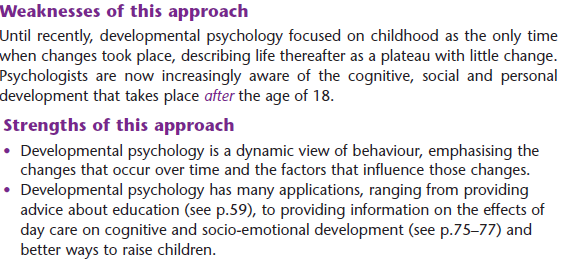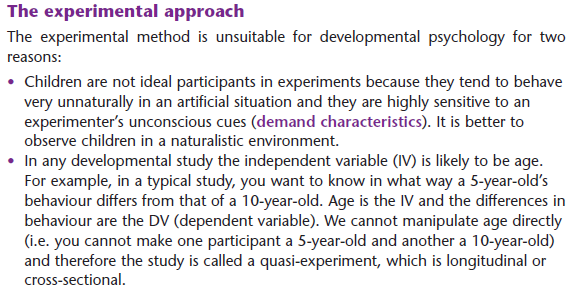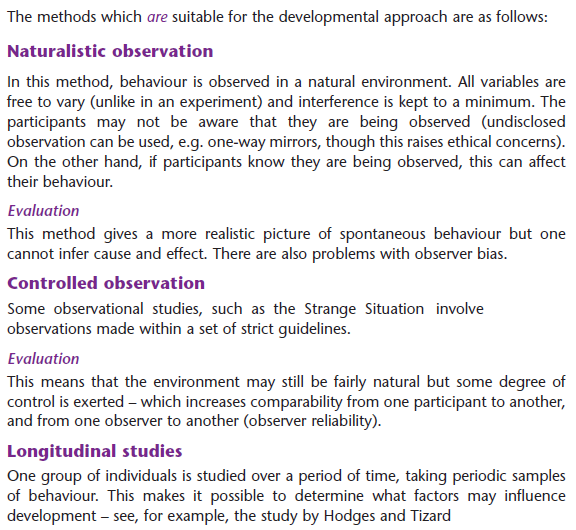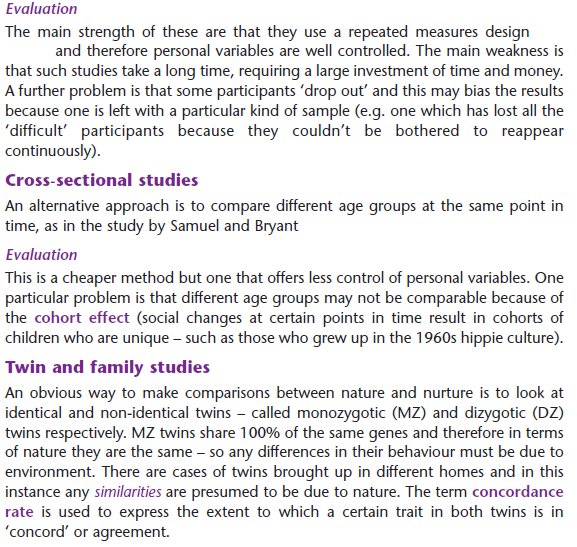The developmental approach
After studying this topic you should be able to:
- define the concepts of nature and nurture
- describe the key assumptions of the developmental approach in psychology
- evaluate the developmental approach in terms of its advantages and limitations
- outline some of the methods used in the developmental approach
Key assumptions of the developmental approach
The term 'development' referes to the changes that take place over a person's lifetime. These changes may be the result of:
Inherited factors (nature) which include events that occur as a result os maturation, such as puberty.
Lifetime experiences (nurture), which include interations with other people.
Psychologists used to talk about 'nature vs nuture', meaning that development could be explained in terms of either nature or nurture. They have since developed their thinking and recognise that all behavior is a result of an interation between both nature and nurture. They still debate which as the greater influence.
There are many aspects to a person's development:
Cognitive (mental abilities). Your thinking changes as you get older. Your knowledge increases and your language develops.
Social - e.g gender devlopment, making friends and learning pro and anti- social behaviour.
Personal - e.g the development of your emotional self and your self esteem.
The cognitive - development approch focuses on the development of cognitive activity and explanations of how behaviour changes in terms of cognition. Moral behaviour for example could be explained in terms of how a child's thinking about right and wrong changes over time.
- You can think of nature and nurture in terms of a plant. One seed (nature) may thrive when planted in a sunny corner of garden with fertile soil (nurture). Another seed may not do as well despite enjoying the same conditions (nurture) due to genetic differences (nature).
Evaluation of the developmental approach

Methods used in the developmental approach

- Demand characteristics are those features of an experiment which cause participants to try to work out what is expected of them, and lead them to behave in certain predictable ways.

Note: Hodges and Tizard can be found under the section - OCR core study and AQA (A) Key Study: Long-term effects of privation

The word ‘zygote’ means fertilised egg, so ‘monozygotic’ means the twins come from one egg and therefore share the same genetic material.
Twins who are raised together also share the same enviroment, so it isn't always possible to claim that any behaviour is due to similar nature or shared nurture.
